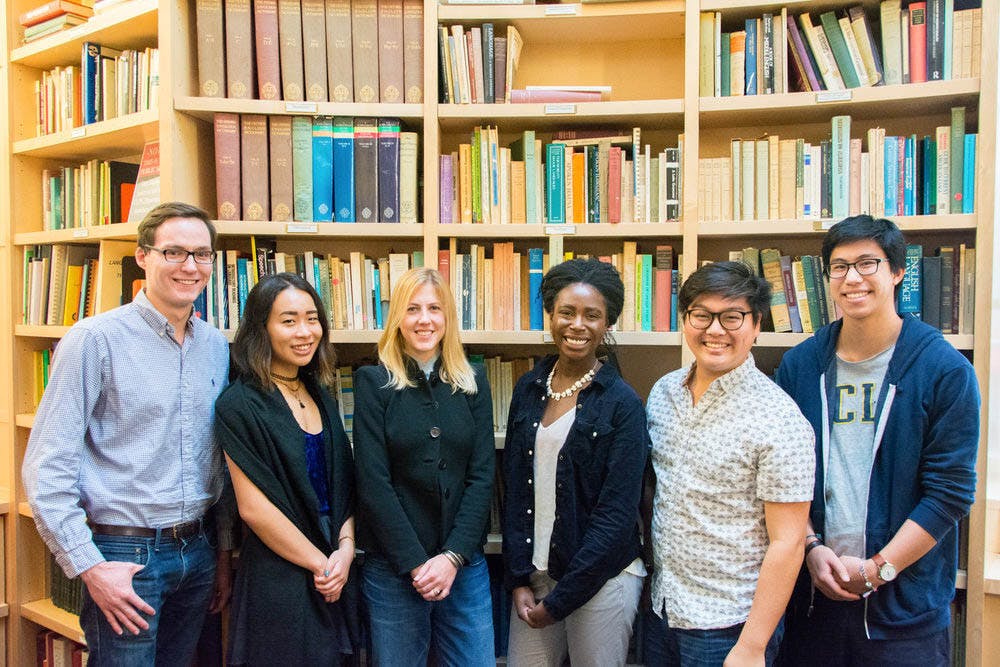How does morality work in the brain? How do we choose between altruism and self-interest? These are questions that the new multidisciplinary FeldmanHall Lab seeks to answer.
What started in August 2016 with the arrival of Oriel FeldmanHall, assistant professor of cognitive, linguistic and psychological sciences, FeldmanHall Lab focuses on three main topics: the self and other, moral cognition and social learning and emotion.
The lab studies questions about the processes involved in common thoughts and actions, delving into how we prioritize our own interests compared to those of others, FeldmanHall said.
FeldmanHall Lab’s work marks a paradigm shift from most research conducted in this domain, which has been more philosophical and focused on normative behavior, she said. Previously, research has focused on how people should behave, whereas her research investigates how people actually respond to situations.
Research Laboratory Manager Jae-Young Son is currently conducting this type of research on the issue of restorative justice — compensation after enduring some wrongdoing — compared to retributive justice — seeking revenge. “We find that if you give people the option … they prefer restorative options overall,” he said.
FeldmanHall often draws upon the Rwandan genocide between of the Tutsi people by the Hutu to exemplify this kind of decision-making.
“After civil war, people in the same society have to learn to get back together and unite after so much hatred has been exchanged,” Son said. “What people have found is that people do forgive — you get victims to come together with perpetrators.”
The lab uses economic games to simplify decision-making problems, Son said. “The beauty is that … they mimic real-life scenarios in a laboratory way.”
One game involved in Son’s research is the ultimatum game, in which player A can offer player B a portion of their money, and player B can choose either to accept it or reject it.
The scenario becomes more complex when two more options are introduced — compensate and reverse. If player B chooses to compensate, B’s monetary payment is increased to match A’s. If B chooses to reverse, the monetary payments are switched.
The researchers observed that when people played the game on their own behalf, they chose to compensate more than reverse. But when playing on someone else’s behalf, they chose to reverse more often. “When we observe injustices being done (to) other people, we apply abstract norms that we are more likely to uphold,” Son said.
Joseph Heffner GS added that part of their work is focused on identifying the contexts in which people value compensation as opposed to punishment. In cases where people prefer punishment, Heffner said a possible reason is that “punishment has a great reputational advantage. When you’re known as the person to stand up and pay the price to punish perpetrators, you’re imbued with a good moral status.”
FeldmanHall said she was drawn to studying these concepts based upon her training in college and experience working in the Senate following her graduation. Combining those two experiences together spurred her to ask questions about social decision making and learning — morality, fairness, altruism, cooperation and pro-social behavior.
The lab specializes in the field of social and affective neuroscience — or using neuroscience techniques to gain cognitive insights on questions taken from social psychology, Son said.
“There are people who do neuroscience and cognition, people who do social psychology and people who do behavioral economics, but our lab is somewhat unique in that we blend all these techniques together and use them to investigate questions about moral cognition,” Son added.
This merging of disciplines makes the lab stand out, FeldmanHall said. “Some of the most interesting research happens at the fringes of multiple different fields. It allows you to approach a question from a number of different angles.”





